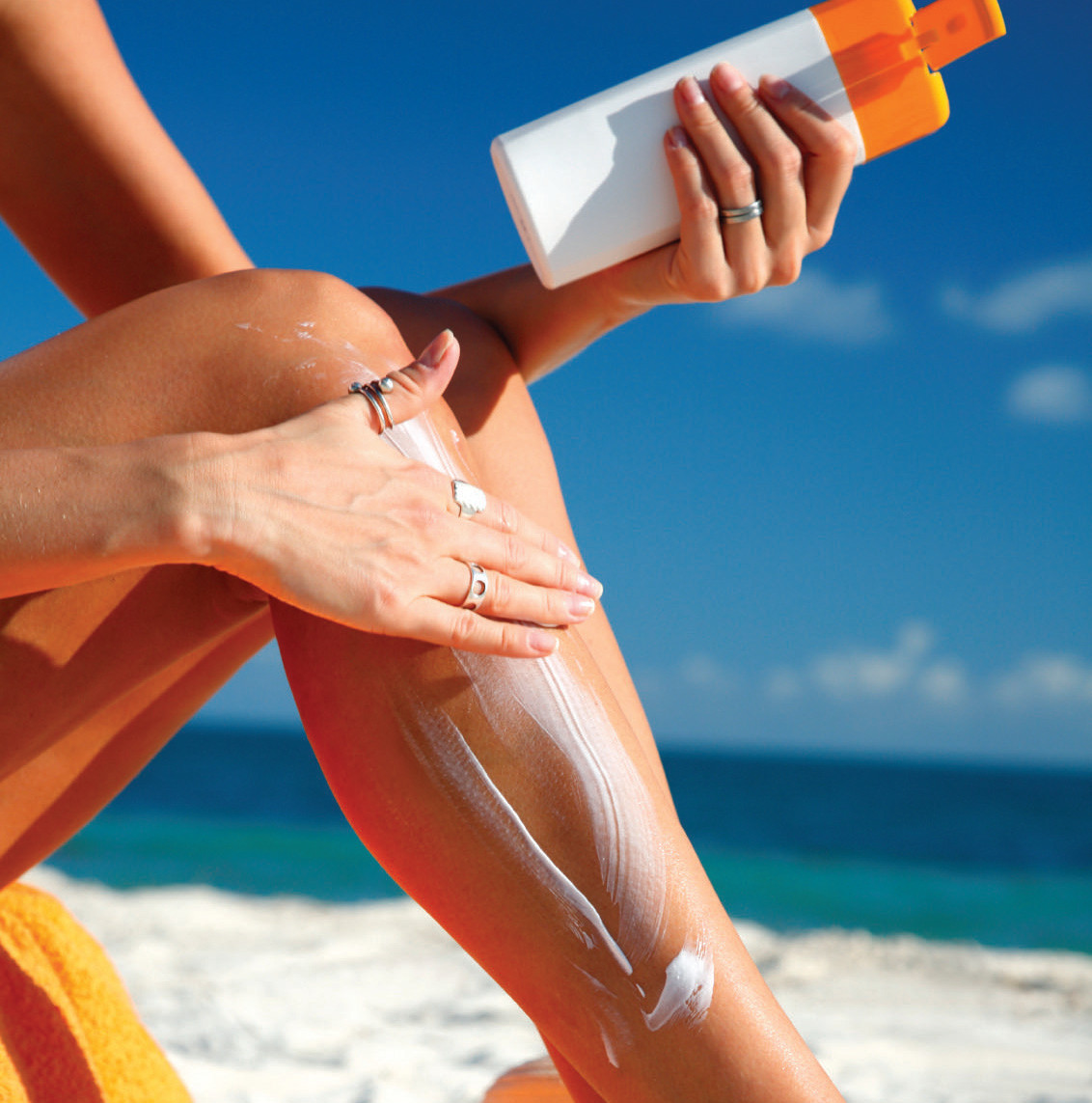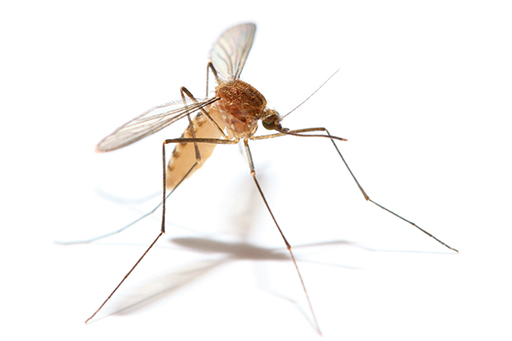OTC

Here comes the sun
In OTC
Bookmark
Record learning outcomes
The risk of ill health ruining a holiday can be concerning, but planning ahead and taking necessary precautions can be all it takes to ensure a happy, healthy holiday is had by all

Almost one in five people intend to travel to a country they have never been to this year, according to the latest ABTA Travel Trends Report. If travelling to new destinations, it’s particularly important that people plan ahead and make sure they’re prepared for common health hazards. Even a minor stomach upset can spoil a trip or lead to serious illness in those with chronic underlying health problems.
“Being prepared and receiving the right advice before going on holiday can help to reduce the risk of becoming ill and turning the dream holiday into a nightmare,” says Hilary Cunningham, one of Numark’s information pharmacists. “Pharmacy has an important role to play in providing sound advice and helping customers to be prepared for their holiday.”
Here’s a look at some of the most common travel health concerns and how pharmacy teams can help.
Being prepared and receiving the right advice before going on holiday can help to reduce the risk of becoming ill and turning the dream holiday into a nightmare
Q: I’ve heard about a new disease called the Zika virus. Should I be concerned?
A: The Zika virus doesn’t occur naturally in the UK, and nor do the mosquitoes that transmit it. Outbreaks have been reported in the Pacific region, and the virus has spread to South and Central America and the Caribbean. “Humans contract Zika when bitten by a Zika-infected mosquito,” said Professor David Moore, adviser to medical helpline Dr Morton’s, in a recent issue of BRIC+ magazine. “Recent reports suggest that it might be possible to transmit infection through exposure to infected blood or sexual contact.”
For most people, Zika is a very mild infection and isn’t harmful. The symptoms include fever, joint pain, a rash, But the infection may be more serious for pregnant women, as it’s been linked to birth defects, including abnormally small heads in babies (microcephaly).
At the beginning of March 2016, Public Health England and the National Travel Health Network and Centre (NaTHNaC) recommended that pregnant women should postpone non-essential travel to areas with active Zika transmission until after pregnancy. They also recommended that women should avoid becoming pregnant while travelling in these areas and for 28 days after they return home.
Women who are pregnant, or plan to get pregnant, and are travelling to affected areas this summer should seek health advice before their trip and speak to their travel provider. Brazil has warned pregnant women to stay away from this year’s summer Olympic games. If customers need to change or cancel their plans, their GP can provide a medical certificate to assist with any possible insurance claims. If men are travelling to an area with active Zika transmission, they and their partner should use effective contraception to prevent pregnancy, and condoms to reduce the risk of sexual transmission during travel and for 28 days afterwards.
Dr Dipti Patel, director at NaTHNaC, advises all travellers, but pregnant women in particular, to avoid mosquito bites. “If travel is unavoidable, or they live in areas where active Zika virus transmission is reported, they should take scrupulous insect bite avoidance measures both during daytime and night-time hours and also seek advice from their GP, midwife or obstetrician,” he says.
Q: I know I need to use sun cream on my children and myself, but I’m also concerned we don’t get enough vitamin D. What should I do?
A: Vitamin D is essential for good bone health, and low levels are linked to rickets in children and osteoporosis in adults. Sun exposure is a major source of vitamin D in the UK, but excessive exposure is also the main cause of skin cancer.
“Unfortunately, no-one can give a precise level of sun exposure that will safely provide you with vitamin D while not putting you at risk of skin cancer,” says Dr Stefanie Williams, a London-based doctor and clinical dermatologist. “This is because there are so many variables – for example, skin colour (the darker your skin, the more UV light you need to make sufficient vitamin D), age (you’re at higher risk of vitamin D deficiency if you’re older), body weight (you’re at higher risk of vitamin D deficiency if you’re overweight), the geographical location, time of day, weather conditions and many more.”
If customers are worried about their vitamin D levels, they should ask their GP for a blood test. Vitamin D3 supplements are available over the counter, either as tablets, capsules or a sublingual spray. To protect themselves from the sun, customers should wear suitable protective clothing, seek shade, especially in the hottest part of the day, and use a high factor sunscreen.
Q: I’ve always wanted to go to New York, but I’m terrified of flying – is there anything that can help keep me calm during the journey?
A: According to Anxiety UK, a fear of flying affects at least one in 10 people. Some people feel claustrophobic in the closed environment or worry about the turbulence, landing or their lack of control. Fear of flying can lead to anxiety or panic attacks, resulting in many people avoiding air travel completely.
Dr Jane Wilson-Howarth, GP and author of Our Child Abroad, suggests that pharmacy customers who experience a fear of flying attend a day course to get desensitised. These courses are run by pilots and cabin crew from the airlines themselves – such as Virgin, BA and Easyjet – at airports around the country and are supported by clinical psychologists. During the course, people learn more about flying and aircraft, as well as hints, tips and coping mechanisms. On most courses, there’s a short flight at the end of the day, so people can practice everything they’ve learnt.
If this fails to work, customers can try sedative medicines or herbal remedies. “Some adults ask their GP to prescribe diazepam, which lasts around four hours, to calm them down before and during a flight,” says Dr Wilson-Howarth. “Promethazine liquid, a sedating antihistamine that’s available over the counter, can be used in children over two years. But some children become hyperactive on it, so it’s important that parents trial it beforehand.”
Customers should let their airline know in advance that they’re a nervous flyer. Requesting seats at the front or over the wings, where turbulence is thought to be less of an issue, may help. Distraction is another effective tool, with the use of books, games, music or films. Some airlines also have a dedicated music and hypnosis channel for nervous flyers.
Q: We’re taking the ferry to France this summer, but my son gets terrible seasickness. What can we do to prevent him feeling so sick?
A: Motion sickness (mild nausea) affects many people from time to time. Around three in 10 people experience more severe symptoms, such as dizziness, vomiting and cold sweats. According to Hilary, travel sickness can occur on boats, planes, trains and in cars. “It is when the brain receives a conflicting combination of messages from the eyes and ears,” she says. “The eyes tell the brain that the body is in one position while the balance organs in the ears give the brain alternative information, causing a person to have travel sickness.”
Mild symptoms can be treated with self-help techniques, such as listening to music when travelling. Customers may find their symptoms improve if they keep still, close their eyes and stay near the centre of the boat or ferry where there is the least movement. Focusing on a stable object such as the horizon, getting some fresh air and staying calm may also help. Customers should also be advised to have light meals and avoid alcohol before they travel. If someone does feel sick, snacking on dry biscuits can help to combat nausea. If they vomit, it’s important that they keep hydrated by drinking plenty of fluids.
Q: How can I prevent mosquito bites? And what can I do if someone in the family gets bitten?
A: Customers should consider using an insect repellent anywhere that insects are active, including during the summer months in the UK. If they are visiting a tropical area, they may need to take malaria tablets as well. Hilary says the risks associated with a mosquito bite will depend on the country being visited. “Some mosquitos can transmit tropical diseases such as malaria, dengue fever, chikungunya and Zika virus,” she says.
“Anyone who returns from travelling to a tropical region with illness or flu-like symptoms should report this to their GP.” According to an article published in the British Medical Journal in February 2015, there are four insect repellent ingredients backed by sufficient published scientific evidence. DEET (N,N-diethyl-m-toluamide) is the most effective insect repellent, especially in high-risk areas, but has a strong smell and can melt some plastics (e.g. sunglasses).
Used in concentrations of 20 to 50 per cent, it can last for up to 13 hours. “DEET is the gold standard of insect repellents,” says Dr Wilson- Howarth. “But some people are sensitive to it, especially if they have broken skin (e.g. eczema), so they should look at the other options available. They can also use an insecticide spray on textiles and fabrics, such as clothing and bedding.”
Icaridin is an effective alternative to DEET at concentrations above 20 per cent and can last for six hours. IR3535 has been less extensively studied and is recommended for regions that aren’t malaria endemic. If customers prefer a ‘natural’ repellent, they can use products containing at least 30 per cent p-Menthane-3,8- diol (PMD), which is derived from lemon eucalyptus and lasts for four to six hours.
Insect repellents wear off sooner if people are swimming or sweating. They should be applied to all exposed skin except the face, at high-risk times (dawn, dusk, and evening for most regions). Customers can also take certain precautions to reduce the risk of bites, such as wearing long-sleeved clothing and socks and using insecticide-treated nets in areas where malaria (or other mosquito-carried diseases) are rife.
Most insect bites cause mild itching and inflammation, and can be eased by washing the affected area and applying a cold compress. Bite relief products containing a local anaesthetic or antihistamine can prevent itching, while low-dose hydrocortisone creams can ease inflammation and swelling. Oral antihistamines can ease a more extensive allergic reaction, but customers should seek medical advice if they notice a lot of swelling and blistering or a build up of pus (which indicates an infection).
Q: I’ve got sun cream, insect repellent and paracetamol ready to take away with us. Is there anything else I should take in case we get ill?
A: Customers should pack a first aid kit, whatever their destination, even if it’s in the UK. As well as sunscreen, insect repellent and paracetamol, customers should consider packing oral rehydration sachets, anti-diarrhoea tablets, laxatives, lip balms (with SPF), tissues, wet wipes and alcohol-based hand sanitiser, contraception, antihistamines, motion sickness tablets, bite cream and first aid essentials including antiseptic cream, plasters and antiseptic wipes.
“The recommended contents for a first aid kit will depend on where the person is travelling to,” says Hilary. “If someone is going on a more adventurous holiday, such as trekking through the Amazon, they will need a more comprehensive kit containing items like sterilised syringes, sutures and clean needles. Customers should also ensure that they have sufficient medication for any pre-existing conditions, and that they understand how to transport and store medicines such as insulin.”
